 |
Convert MLP to AIFF
|
MLP to AIFF Converter converts MLP files to
AIFF. The converter focuses on AIFF file that supports almost all codecs
in AIFF specification, for example, pcm 8-bit, pcm 16-bit, pcm 24-bit, pcm 32-bit,
pcm 32-bit float, pcm 64-bit float, a-Law, mu-Law, IEEE 754 float, ima4, gsm,
dwvw, and so on. The software also supports common file format such as AAC, MP2, AC3, OGG, VOC, M4A (MPEG-4 audio), AIFF, MP3,
etc. It could convert THD to WAV, AU to M4R (iPhone ringtone), M4V to AMR, M4V to AAC, EAC3 to MMF, H264 to M4A (MPEG-4 audio), and so on.
The software is very easy to use and supports batch conversion.
It is full compatible with 32-bit and 64-bit Windows 10/8/7/Vista/XP/2000.

What is MLP?
MLP (Meridian Lossless Packing) is a lossless coding system for use on high-quality
digital audio data originally represented as linear PCM. High quality audio these
days implies high sample rates, large word sizes and multichannel.
The MLP is used by Meridian codec. Audio compression used on DVD video discs.
MLP performs lossless compression of up to 63 audio channels including 24-bit
material sampled at rates as high as 192kHz.
Lossless compression has many applications in the recording and distribution
of audio. In designing MLP we have paid a lot of attention to the application
of lossless compression to data-rate-limited ransmission (e.g. storage on DVD),
to the option of constant data rate in the compressed domain and to aspects that
impact on mastering and authoring. MLP was targeted to provide:
- Good compression of both peak and average data rates.
- Use of both fixed and variable-rate data-streams.
- Automatic savings on bass-effects channels.
- Automatic savings on signals that do not use all of the available bandwidth
(e.g. sampled at 96kHz).
- Automatic savings when channels are correlated.
- Comprehensive metadata.
- Hierarchical access to multichannel information.
- Modest decoding requirements.
MLP provides for up to 63 channels, but applications tend to be limited by
the available data rate. To aid compatibility, MLP uses a hierarchical stream
structure containing multiple substreams and hierarchical additional data. With
this stream structure decoders need only access part of the stream to playback
subsets of the audio. Suitable use of the substreams also allows 2-channel compatibility;
a low-complexity decoder can recover a stereo mix from a multichannel stream.
Figure 1 gives an overview of the process of losslessly compressing a stream containing
multiple audio channels and auxiliary data onto a disc.
What is AIFF?
Audio Interchange File Format (AIFF) is an audio file format standard used for
storing sound data for personal computers and other electronic audio devices.
The format was co-developed by Apple Computer in 1988 based on Electronic Arts'
Interchange File Format (IFF, widely used on Amiga systems) and is most commonly
used on Apple Macintosh computer systems. AIFF is also used by Silicon Graphics
Incorporated. The audio data in a standard AIFF file is uncompressed big-endian
pulse-code modulation (PCM). There is also a compressed variant of AIFF known
as AIFF-C or AIFC, with various defined compression codecs.
Standard AIFF is a leading format (along with SDII and WAV) used by professional-level
audio and video applications, and unlike the better-known lossy MP3 format, it
is non-compressed (which aids rapid streaming of multiple audio files from disk
to the application), and lossless. Like any non-compressed, lossless format, it
uses much more disk space than MP3¡ªabout 10MB for one minute of stereo
audio at a sample rate of 44.1 kHz and a sample size of 16 bits. In addition to
audio data, AIFF can include loop point data and the musical note of a sample,
for use by hardware samplers and musical applications.
The file extension for the standard AIFF format is .aiff or .aif. For the compressed
variants it is supposed to be .aifc, but .aiff or .aif are accepted as well by
audio applications supporting the format.
- Free Download
MLP to AIFF Converter
- Install the software by instructions
- Launch MLP to AIFF Converter
- Choose MLP Files
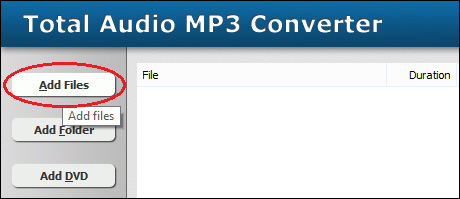
Click "Add Files" to choose MLP files and then add them
to conversion list.
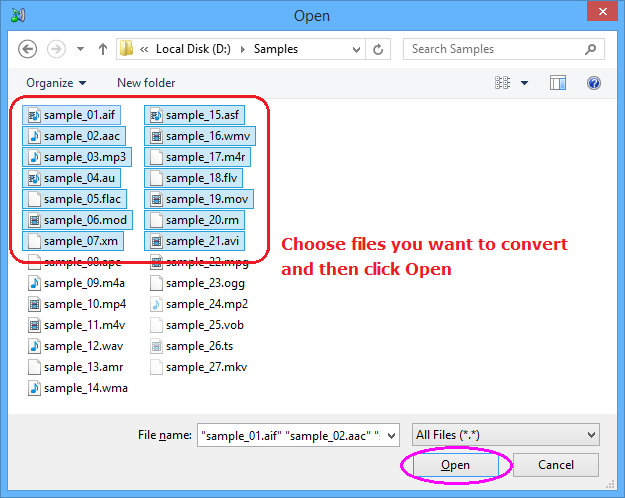
Choose one or more MLP files you want to convert and then click Open.
- Choose "to AIFF"
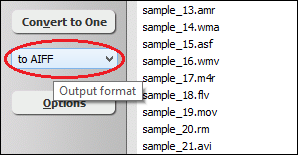
- Convert MLP to AIFF
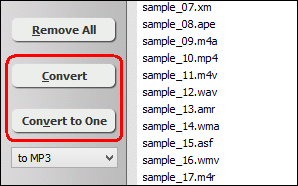
Click on "Convert" to convert MLP files to AIFF format; alternatively,
click on "Convert to One" to convert all files in list and
combine to a single one AIFF file.

The software is converting MLP files to AIFF format.
- Play and Browse AIFF File
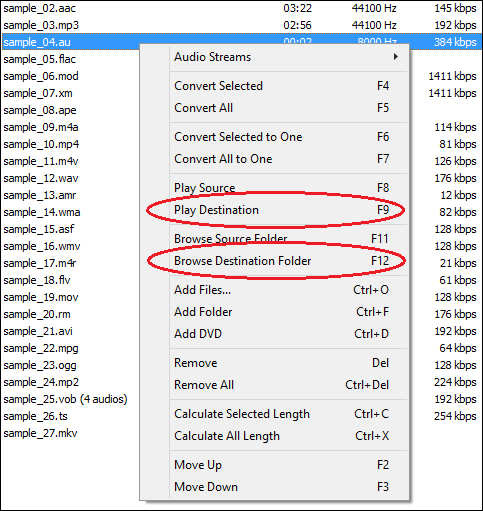
When conversion completes, you could right-click on converted file and choose
"Play Destination" to play the AIFF file; or choose "Browse
Destination Folder" to open Windows Explorer to browse the outputted AIFF
file.
Top
MLP to AIFF Converter is 100% clean and safe to install.
It's certified by major download sites.

MLP to AIFF Related Topics:
|

